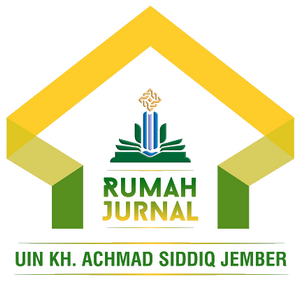Developing Strategy for Young Da'i: Da'wah Education at the Nadhatul Ulum Islamic Boarding School
DOI:
https://doi.org/10.35719/ijibs.v2i1.39Islamic boarding schools in Indonesia play a strategic role in character-building and spreading Islamic teachings. One key element is the role of the dai or preacher in conveying Islamic values to students and the surrounding community. However, the development of preaching in these schools faces several challenges, affecting its quality and impact. This research explores how Islamic boarding schools and preachers can design more effective development strategies aligned with contemporary demands to improve the quality of preaching and the schools' contribution to forming an Islamic values-based society. The study focuses on the education of Dakwah Pembina at the Nahdlatul Ulum Islamic Boarding School in Soreang Maros, addressing three main questions: the implementation of the Guidance Da'wah Strategy, the materials used to support da'wah training for students, and the advantages and disadvantages of Santri da'wah training at the school. The research aims to deeply understand the Da'wah Strategy of Guidance at Nahdlatul Ulum, explore supporting materials for Da'wah training, and analyze the training's strengths and weaknesses. A qualitative approach is used, with data collected through observation, interviews, and documentation. Results show that Nahdlatul Ulum Soreang Maros implements the Guidance Da'wah Strategy through various activities. Supporting materials include Formal Madrasah Education and the Study of the Yellow Book. The advantages of Santri da'wah training include providing knowledge, while the disadvantages are the need for teacher creativity and attention in implementing da'wah training.
References
Azka, Ibnu, Iswandi Syahputra,“Komunikasi Politik Capres Anies Baswedan Menuju Pemilu 2024 Melalui Media Sosial Instagram.” Jurnal Ilmu Komunikasi 10, no. 1 (2023): 37–46. http://jurnal.bsi.ac.id/index.php/jika/issue/archive.
Chandra, Pasmah. “Internalisasi Nilai-Nilai Karakter” XII, no. 20 (2019): 64–80.
Dewi, Eva. “Potret Pendidikan Di Era Globalisasi Teknosentrisme Dan Proses Dehumanisasi.” Sukma: Jurnal Pendidikan 3, no. 1 (2019): 93–116. https://doi.org/10.32533/03105.2019.
Efendy, Rustan, Ali Rahman, and Abdul Rahim Karim. “Scientific Transformation of Islamic Boarding Schools through Role of Alums the Islamic Education Study Program.” Al-Hayat: Journal of Islamic Education 7, no. 2 (2023): 355. https://doi.org/10.35723/ajie.v7i2.349.
Gozali, Muhammad, Dang Eif Saiful Amin, and Herman Herman. “Strategi Pondok Pesantren Dalam Pengembangan Dakwah.” Tadbir: Jurnal Manajemen Dakwah 2, no. 2 (2017): 171–90. https://doi.org/10.15575/tadbir.v2i2.226.
Hasanah, Hasyim, Ibnu Hadjar, and Baidi Bukhori. “Development of Da’i Competency Model in Campus Using Psychological and Management Approach.” Ilmu Dakwah: Academic Journal for Homiletic Studies 12, no. 2 (2018): 229–46. https://doi.org/10.15575/idajhs.v12i1.4536.
Imam Tabroni, Asep saipul malik, and Diaz Budiarti. “Peran Kyai Dalam Membina Akhlak Santri Di Pondok Pesantren Al-Muinah Darul Ulum Desa Simpang Kecamatan Wanayasa.” Jurnal Pendidikan, Sains Sosial, Dan Agama 7, no. 2 (2021): 108–14. https://doi.org/10.53565/pssa.v7i2.322.
Ismail, Syahid. “Strategi Mewujudkan Kemandirian Pesantren Berbasis Pemberdayaan Santri.” Perspektif Sosiologi 4, no. 1 (2016): 56–71.
JOKO TRI HARYANTO. “Relasi Agama Dan Budaya Dalam Hubungan Intern Umat Islam.” Smart 1, no. 1 (2015): 44.
M. Askari Zakariah, Vivi Afriani, KH. M. Zakariah. Metode Penelitian : Kuantitatif, Kualitatif. Action Research, Research and Development ( R and D ). Yayasan Pondok Pesantren Al-Mawaddah Warrahmah, 2020.
Mawahib, Mochamad, and Ahmad Sunoko. “The Existence of Islamic Boarding Schools in Improving Public Education.” EDUKASI : Jurnal Pendidikan Islam (e-Journal) 10, no. 2 (2022): 191–207. https://doi.org/10.54956/edukasi.v10i2.338.
Muchaddam, Achmad Fahham. Pendidikan Pesantren : Pola Pengasuhan, Pembentukan Karakter Dan Perlindungan Anak. Jakarta: Publica Institute Jakarta, Anggota IKAPI DKI Jakarta, 2020.
Muhammad Fuad Zain. “Curriculum Planning in Boarding School Tahfizil Qur’an Islamic Center Foundation.” Journal of Education and Teaching Learning (JETL) 3, no. 1 (2020): 1–9.
Muttaqin, Ahmad. “Islam and the Changing Meaning of Spiritualitas and Spiritual in Contemporary Indonesia.” Al-Jami’ah: Journal of Islamic Studies 50, no. 1 (2012): 23–56. https://doi.org/10.14421/ajis.2012.501.23-56.
Purwanto, Muhammad Roy, Tamyiz Mukharrom, Supriadi, and Putri Jannatur Rahmah. “Optimization of Student Character Education through the Pesantren Program at the Islamic Boarding School of the Universitas Islam Indonesia.” Review of International Geographical Education Online 11, no. 5 (2021): 2829–37. https://doi.org/10.48047/rigeo.11.05.179.
Sanah, Siti, Odang Odang, and Yuni Lutfiyani. “Model Pengembangan Keterampilan Berbahasa Arab Di Pesantren.” Ta’lim Al-’Arabiyyah: Jurnal Pendidikan Bahasa Arab & Kebahasaaraban 6, no. 2 (2022): 271–93. https://doi.org/10.15575/jpba.v6i2.20164.
Suali, Mahmud Fauzi. “An Islamic Boarding Schools As Means Of Regeneration In The Development Of Da’wah.” Ilomata International Journal of Social Science 1, no. 3 (2020): 149–57. https://doi.org/10.52728/ijss.v1i3.123.
Ummah, Athik Hidayatul. “Communication Performance Of Millennial Students: Digital Da’wah Strategies Of Islamic Boarding Schools In Lombok West Nusa Tenggara Athik.” Jurnal Komunikasi Dan Pengembangan Masyarakat Islam 21, no. 1 (2023): 71–100.
Yamin, Mohamad, Nurwadjah Ahmad, and Andewi Suhartini. “Konsep Pendidikan Berwawasan Lingkungan Dalam Perspektif Islam.” Edukatif : Jurnal Ilmu Pendidikan 4, no. 4 (2022): 5852–62. https://doi.org/10.31004/edukatif.v4i4.3513.
Downloads
Published
Issue
Section
License
Copyright (c) 2024 Ibnu Azka Azka, Siti Nurhalisa, Fathur Baldan Haramain

This work is licensed under a Creative Commons Attribution-NonCommercial 4.0 International License.
License
1. Author’s Warranties
The author warrants that the article is original, written by stated author/s, has not been published before, contains no unlawful statements, does not infringe the rights of others, is subject to copyright that is vested exclusively in the author and free of any third party rights, and that any necessary written permissions to quote from other sources have been obtained by the author(s).
2. Miscellaneous
IJIBS will publish the article (or have it published) in the journal if its editorial process is successfully completed and IJIBS or its sublicensee has become obligated to publish it. IJIBS may conform the article to a style of punctuation, spelling, capitalization, and usage that it deems appropriate.

















 IJIBS licensed under Creative Commons Attribution-NonCommercial 4.0 International License.
IJIBS licensed under Creative Commons Attribution-NonCommercial 4.0 International License.